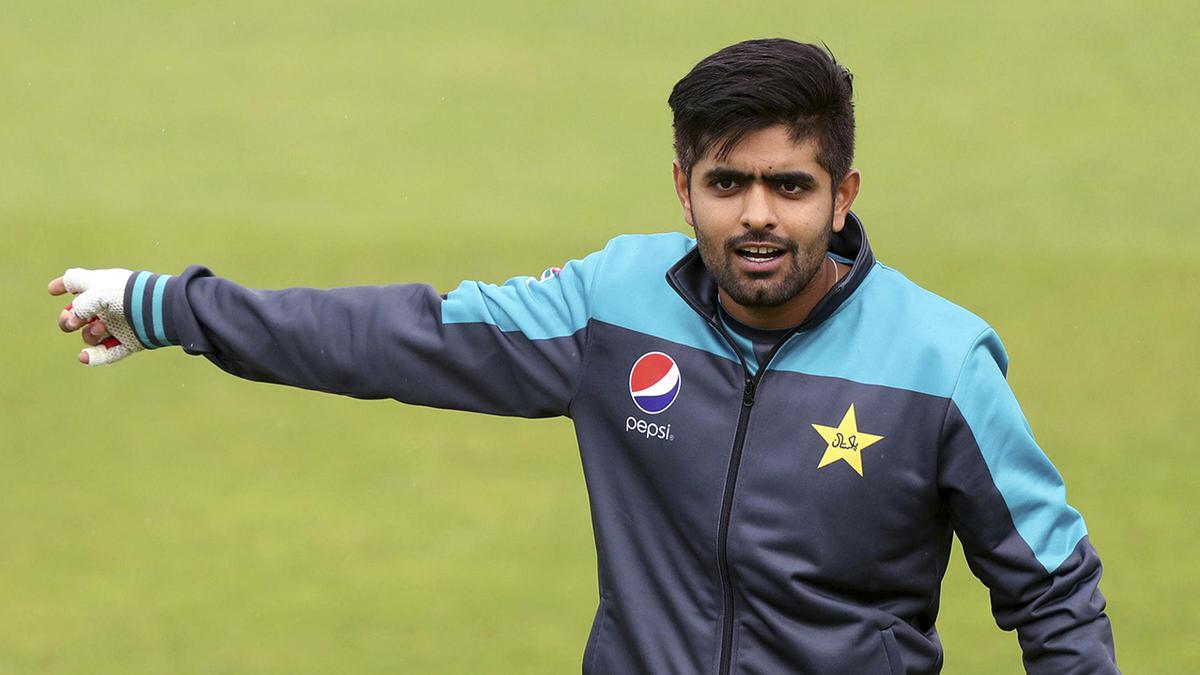
Unlike PSL, Babar Azam refuses to endorse betting firm
The Hindu
Pakistan captain Babar Azam has refused to wear and endorse the logo of a betting firm during the upcoming Lanka Premier League, even as betting companies sponsor many franchises of the Pakistan Super League.
Pakistan captain Babar Azam has refused to wear and endorse the logo of a betting firm during the upcoming Lanka Premier League, even as betting companies sponsor many franchises of the Pakistan Super League.
A source close to the player said that Babar had incorporated a clause that he wouldn't be involved in the promotion of betting firms when he signed a deal to play in the LPL this year.
"Most of the Pakistani players are telling franchise owners and league organisers they don't want to be associated with wearing logos and endorsing them if they belong to any betting company including through surrogate advertising," the source said.
Previously senior player Mohammad Rizwan had refused to wear a logo of a betting company in the Pakistan Super League.
The irony is that while some of the Pakistani players are taking a stance on surrogate advertising by betting companies, the Pakistan Cricket Board (PCB) and some of its PSL franchises were sponsored by betting companies in the league's last edition, with the players wearing the logos of such firms on their jerseys.
One of the PCB's main sponsors in the PSL and during a recent home series has been a betting website which used surrogate advertising to promote its platform.
But the source said Babar had said "a flat no" to the Colombo Strikers franchise which signed an agreement with him for the Lanka Premier League.

“Writing, in general, is a very solitary process,” says Yauvanika Chopra, Associate Director at The New India Foundation (NIF), which, earlier this year, announced the 12th edition of its NIF Book Fellowships for research and scholarship about Indian history after Independence. While authors, in general, are built for it, it can still get very lonely, says Chopra, pointing out that the fellowship’s community support is as valuable as the monetary benefits it offers. “There is a solid community of NIF fellows, trustees, language experts, jury members, all of whom are incredibly competent,” she says. “They really help make authors feel supported from manuscript to publication, so you never feel like you’re struggling through isolation.”

Several principals of government and private schools in Delhi on Tuesday said the Directorate of Education (DoE) circular from a day earlier, directing schools to conduct classes in ‘hybrid’ mode, had caused confusion regarding day-to-day operations as they did not know how many students would return to school from Wednesday and how would teachers instruct in two modes — online and in person — at once. The DoE circular on Monday had also stated that the option to “exercise online mode of education, wherever available, shall vest with the students and their guardians”. Several schoolteachers also expressed confusion regarding the DoE order. A government schoolteacher said he was unsure of how to cope with the resumption of physical classes, given that the order directing government offices to ensure that 50% of the employees work from home is still in place. On Monday, the Commission for Air Quality Management in the National Capital Region and Adjoining Areas (CAQM) had, on the orders of the Supreme Court, directed schools in Delhi-NCR to shift classes to the hybrid mode, following which the DoE had issued the circular. The court had urged the Centre’s pollution watchdog to consider restarting physical classes due to many students missing out on the mid-day meals and lacking the necessary means to attend classes online. The CAQM had, on November 20, asked schools in Delhi-NCR to shift to the online mode of teaching.









